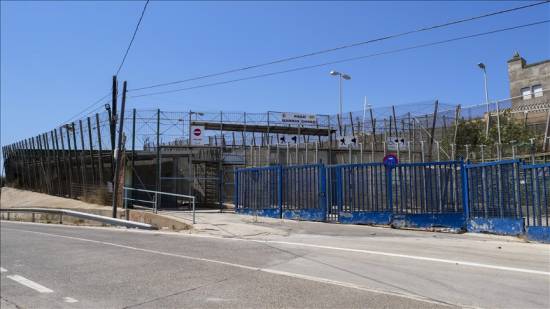Sudanese migrant Mohamed Ismail has left his country to Morocco in the hope of finding a better job. His hope, however, ended up in injuries from bullets fired by Moroccan security forces.
Ismail departed Sudan through the border into several countries until he landed in Morocco six months ago. There, he helplessly tried hard to find work to make a living, but to no avail.
Losing any hope to find a good job opportunity, he decided to join hundreds of migrants in crossing the militarized border fence between Morocco and the Spanish enclave of Melilla, but they were met with force from both Moroccan and Spanish security forces.
Initial reports indicated five were killed in last week’s violence, but Moroccan authorities later raised that figure to 23. Helena Maleno Garzon, head of the NGO Walking Borders, says at least 37 people lost their lives.
Videos from the Moroccan side of the border show what appear to be dead bodies and severely injured people strewn across the ground without receiving medical attention.
Other images show hundreds of people, some with clear injuries, lying in a pile on the ground with their hands tied behind their backs.
Among those injured was Ismail, who was shot and injured by rubber-coated bullets.
“I came to Melilla in search for work and to cross into Spain,” Ismail told Anadolu Agency.
He recalled that the situation suddenly turned into violence when police tried to prevent migrants from crossing the border fence.
“The migrants did not use violence,” Ismail said.
According to Spanish news agency EFE, dozens of Moroccan and Spanish police officers were also injured during the storming of the border, where migrants were armed with homemade knives, as well as sticks, stones, and hooks to climb the border fence.
Following the violence, Ismail was deported by Moroccan authorities to the city of Beni-Mellal, 600 kilometers far from Melilla.
“I have no idea why I was deported,” he said.
Moroccan authorities have deported hundreds of migrants to other cities in an attempt to prevent any future attempt by them to cross into Spain.
On Saturday, several non-governmental organizations have demanded a probe into the treatment of migrants during their attempt to cross the border.
The attempt was the largest mass movement on the border since Spain and Morocco boosted bilateral cooperation after Madrid decided to support Rabat's position on the independence of Western Sahara./aa


